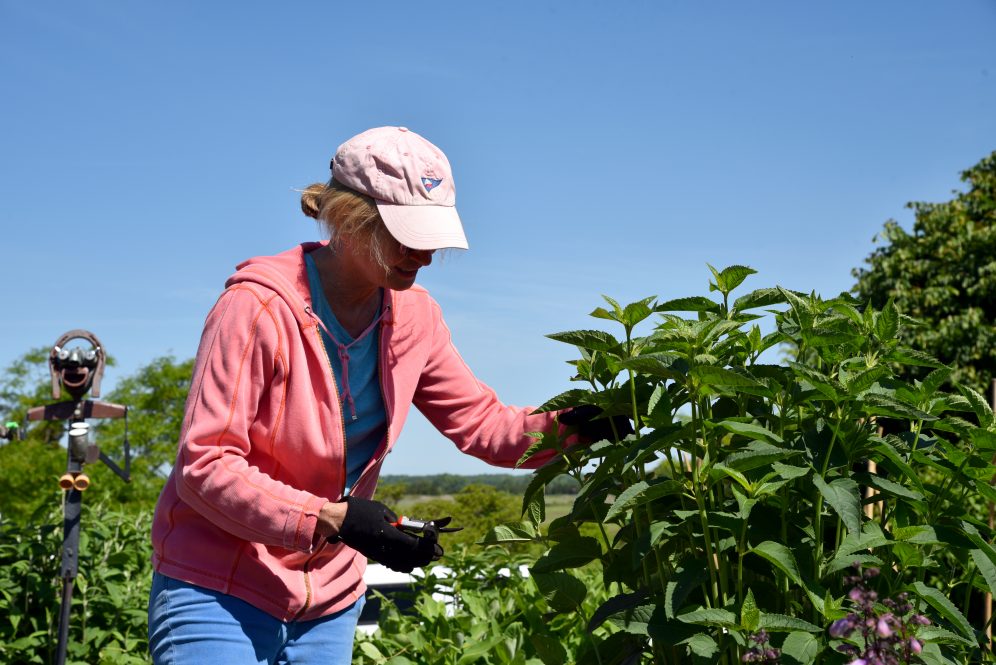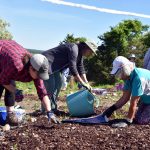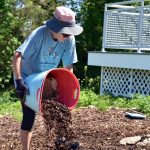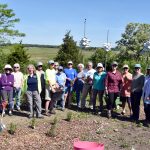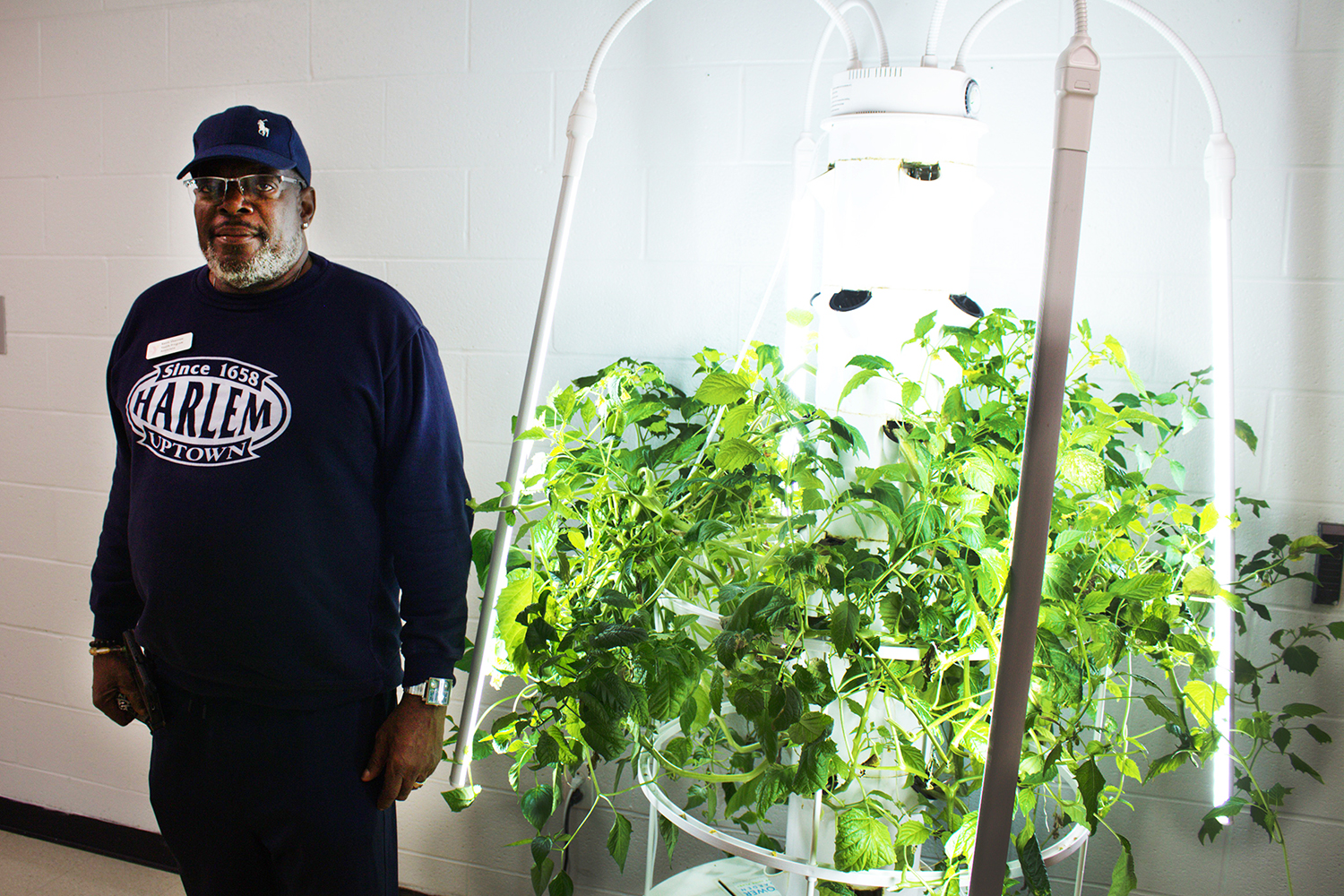When you think of Hammonasset State Park the first images that come to mind might be of the familiar Connecticut beach: the waves, the sand, the jetties. But the park is much more than the beach, thanks in part to the work of UConn Extension’s Master Gardeners.
Hammonasset State Park includes 10 gardens at the Meigs Point Nature Center. The gardens were established in the 1990s, but without enough volunteer support, they fell into disrepair. In 2010, the Friends of Hammonasset began maintaining the diverse gardens, and in 2015, they joined forces with UConn’s Master Gardener Program to ensure the immediate and long-term maintenance for visitors to enjoy.
Maureen Egan was on the board of the Friends of Hammonasset and had earned her Master Gardener certification in 2014. She knew the value that the Master Gardener Program could add.
“We’ve expanded, reshaped, and have had a really good time,” Egan says.
UConn’s Master Gardener Program, an educational and outreach offering through UConn Extension, provides Connecticut residents with horticultural training and outreach opportunities to develop a mighty “green thumb,” says Gail Reynolds, UConn Extension Master Gardener Program coordinator for Middlesex County. “Our participants are enthusiastic, they’re willing to learn, and they truly want to put their knowledge and training to good use. This partnership was a win-win for Hammonasset and our Master Gardeners.”
Since 2015, Egan has led the effort to maintain and grow the gardens with the support of dozens of volunteers, including several UConn Extension Master Gardeners. The Friends of Hammonasset provide funds for the gardens, and park staff also provide great support with mulch and mowing. The Connecticut Master Gardener Association, an alumni group for UConn Extension Master Gardeners, provided some funds necessary to purchase plants and equipment several years ago as well.
The volunteers work from the beginning of the season in early May through November. They design, plant, weed, water, and maintain each of the gardens at Meigs Point. And just because they aren’t making weekly trips to the beach during the winter doesn’t mean the work stops. Project volunteers spend the colder months planning for the upcoming spring.
The gardeners choose the plants for these gardens carefully, focusing on native options that support local pollinators. The plants also need to be able to weather the conditions of the beach environment. This means choosing salt-tolerant plants that can withstand shore winds and overflow from the ocean.
This sort of thoughtful, purposeful strategy can help support local wildlife as well as stabilize the landscape against floods, holding sand in place and limited erosion.
“A lot of people who aren’t Master Gardeners think gardening is all about aesthetics and not about helping out the ecosystem,” says Reynolds.
Cultural heritage is also part of the group’s decision-making process. For instance, the Three Sisters Garden at Meigs Point includes corn, squash, and beans. These “sister” crops support each other by providing and recycling nutrients that the others need. Native American tribes, the original inhabitants in the area, traditionally grew these three vital crops together in this way.
“It’s all a very symbiotic thing,” Egan says. It’s very beautiful.”
Supporting local wildlife is also part of the planning. At the request of the Menunkatuck Audubon Society , the volunteers created a garden specifically suited for the purple martin, a native bird species, in 2017. The garden provides the martins with a safe area to nest.
Other gardens include a butterfly garden, a mini meadow, an herb garden, and a native coastal garden.
The Master Gardener Program also works to educate the public about the importance of their work, from choosing native plants to highlighting how gardens can support the ecosystem.
“If a few people go and look at the gardens, read about it, and it makes an impact, I think that’s a success,” Reynolds says.
Egan says she takes pride in what she and the volunteers have created at the park.
“We really like that we’ve created something that wasn’t there before where people can relax, and think, and enjoy the wildlife and maybe learn a little about native plants that they didn’t know before,” Egan says.
The UConn Extension Master Gardener Program was established in 1978 with the goal of training enthusiastic volunteers to understand the best horticultural practices for gardening and share their knowledge with the community.
Follow UConn CAHNR on social media
